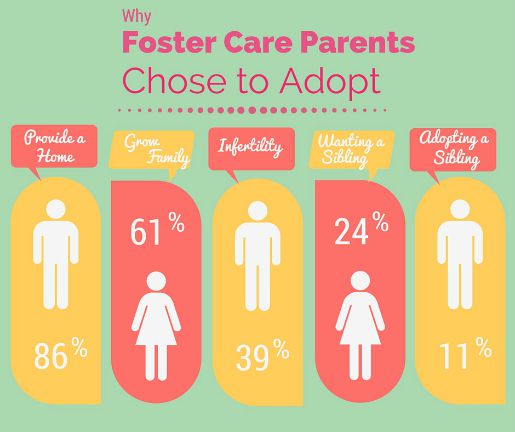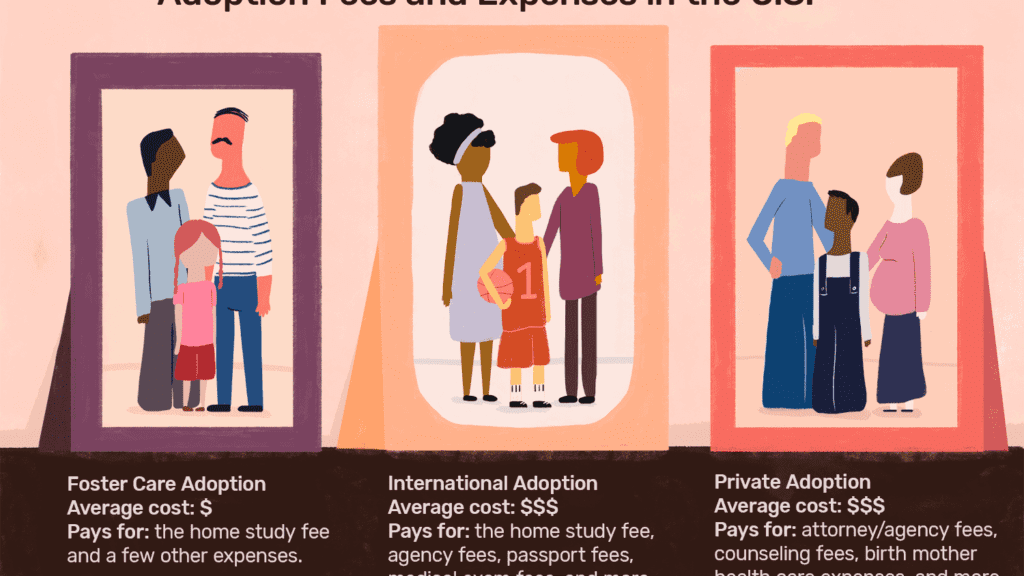Foster care VS adoption, so foster care is a system in which a minor is placed in a ward, a group home (a residential complex for childcare, a treatment center. And the child’s placement is usually arranged through the government or a social services agency. The institution, group home, or sponsoring parent is reimbursed for expenses unless a family member.
Foster care VS adoption

Foster care VS adoption
More than a quarter of sponsored children are placed in the care of kin, and most of these cases take place informally without the involvement of any court or public organization.
Yet formal kinship care is becoming increasingly common in the United States, and in 2012 a quarter of children involved were placed in traditional foster care with relatives rather than including them in the system. Did you know now the difference between Foster care VS adoption?
Foster care VS adoption
Foster care VS adoption At first glance, foster care and adoption seem very similar – and they both involve bringing a child home to nurture and nurture. Many prospective parents confuse the two when they attend foster or adoptive parent training classes.
But there are two fundamental differences: permanence and parental rights.
Government agencies do not want children to remain in alternative care indefinitely, so foster care is temporary.
The agency wants to fix the problems in the child’s home or with his parents that led to him being removed from them. The goal is to return home one day, but if that proves impossible, he will be approved for adoption.
Adoption is permanent. It is a legally binding relationship that gives the adopted child all the rights and privileges of a biological child.
Adoptive parents are the child’s parents forever, just as if they had given birth to themselves, and this is Foster care VS adoption.
What are Parental Rights in Foster care VS adoption?

Foster care VS adoption
So you do know the Parental rights in Foster care VS adoption?
In most cases, a child’s parents retain their parental rights even while in foster care.
Some of these rights may be supervised by the state, but they are only terminated if the child is placed for adoption.
Until then, Birth has the final say in decisions regarding child care, with or without input from the state.
The custodial parents cannot make medical decisions for the child.
They cannot decide where he will attend a school or which religious services he should attend, at least without the consent of a guardian.
And in some states, foster children can’t even get haircuts without their parents’ permission.
It is determined that a foster child cannot return to his biological parents.
The state will terminate parental rights and bear those rights until the child is adopted.
However, he will continue to live in the foster home until he is legally adopted either by his foster parents or by another parent or spouse.
In adoption cases, adoptive parents are responsible for all decisions regarding their child, just as if it had been born to them.
Adopting parents are responsible for the child’s medical care, financial obligations, and educational and spiritual development.
If you consider becoming a foster parent and adopting a child, ask yourself two critical questions.
Do you want your relationship with the child to be forever or temporary?
Are you ready and willing to assume all the rights and legal responsibilities of the child?
Both foster care and adoption include the supervision of a child or children who are not biologically.
A foster child may have special needs due to abuse, neglect, or any issue that has led to him being removed from his parent’s home.
Those who wish to become foster parents or adopt a child from foster care usually take the same training classes until they are ready to meet these challenges.
The psychological state of young people in Foster care VS adoption
Many young people live in children’s homes or care homes, and these young people are more susceptible to mental illness.
But recent studies have proven that social media can help in this, so what is The psychological state of young people in Foster care VS adoption?
When young people are cared for by the state, they live in a group of care homes, including the children’s homes or their custodial parents or with their friends or relatives.
And it is known that these young people are vulnerable to mental and psychological diseases.
It is possible to live with people who abuse the to date; many believe that the risks associated with young people requiring care using social media – including unwelcome contact from their families of origin – outweigh any potential benefits.
And this assumption has overshadowed the evidence that social media use can enhance” Social Media.”
It is a term used to describe opportunities to get to know and connect with other people.
As a result, very little research has been done on how young people living in state care homes use social media. How did social media help them?
The importance of social media for young people in Foster care
The study involved more than 100 observations in four residential homes over seven months, so what is the essence of social media for young people in Foster care.
The observations showed first-hand how ten young people used social media as part of their daily lives and conducted focus groups and interviews with young people and caregivers to discuss what they saw.
They found that ten young people use social media applications to stay informed of the latest developments in the lives of their friends, real family, or past sponsors.
Instead of these applications posing a threat to their health and psychological well-being, keeping them informed of the latest developments makes them feel a sense of belonging and connection.
And this is the main difference between Foster care VS adoption, Hope you find it helpful to you.
for read more visit facebook page